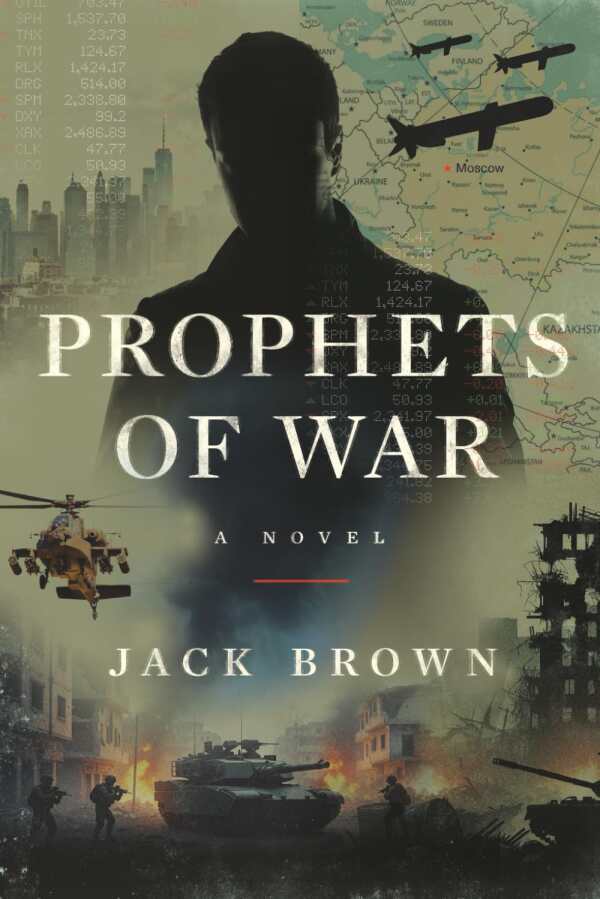
Prophets of War
In the topical thriller Prophets of War, a wealth manager faces a crisis of conscience after uncovering a global conspiracy.
In Jack Brown’s scathing thriller Prophets of War, the military-industrial complex perpetuates cruelty in society.
While pursuing a career in wealth management, Alex uncovers a widespread network of businesspeople profiting from the war in Ukraine and other global conflicts, funding both sides to keep the war machine rumbling and profits flowing. His father, Todd, is behind a worldwide conspiracy, putting the family in conflict over money and morals. Alex seeks to come up with alternative ways of operating, hoping to create a world unsullied by blood money.
Cascading revelations position Alex in the role of a detective, moving from corporate offices to far-flung locales including Tortola in the British Virgin Islands. In addition to its intrigue, mundane interactions are also used to move the plot along, whether Alex is reading an article, lounging on the beach with his family, or chatting with a colleague about golf handicaps. His narration is nuanced and marked by frequent internal monologues. Beyond Alex, though, the characterizations are superficial, with people present only to advance the plot, deliver expository thoughts, or for Alex to bounce his ideas off of.
Wordplay abounds, including in people’s quick-witted conversations. Further, there are evocative descriptions to flesh out the settings: The sun drifts low, glazing the sky with a palette of colors; the wide streets of Washington, DC, are said to be designed for parades, with statues that watch from each limestone corner; Zurich is “a city that smiled like a banker while hiding the bones of empires.” Instances of alliteration and parallelism also distinguish the flowing, staccato prose.
The chapters end with cliffhangers, ominous declarations, and punchy statements of resolve to maintain momentum. Indeed, the book’s pacing is urgent from the first: The book begins with Alex’s startling comparison of his father to Adolf Hitler; it then shares their family’s backstory. Alex’s immersion in the shadowy conspiracy world, through which he encounters one moral horror after another, follows, marked by his cynical observations of geopolitics: He says that governments are puppets, and that investment brokers find that “nothing loosened a firm’s wallet like free food and flattery.”
Some such positions are repeated ad nauseam, though, impeding the story’s ultimate unfolding. Various characters declare that war is a profitable, great investment that creates economic opportunity (herein, businesspeople are always “about to make a killing—literally”) or make wry observations such as that the French government loved Napoleon when he was winning wars and bringing in money. Further, the book’s climax is somewhat predictable, and its excitement is bogged down by people’s theorizing and pontificating. The brief epilogue reignites some excitement as it sets the table for a sequel, though.
The blistering novel Prophets of War dramatizes the intersection of capital, ideology, and war, couching sociopolitical observations in the context of an international thriller.
Reviewed by
Joseph S. Pete
Disclosure: This article is not an endorsement, but a review. The publisher of this book provided free copies of the book and paid a small fee to have their book reviewed by a professional reviewer. Foreword Reviews and Clarion Reviews make no guarantee that the publisher will receive a positive review. Foreword Magazine, Inc. is disclosing this in accordance with the Federal Trade Commission’s 16 CFR, Part 255.
